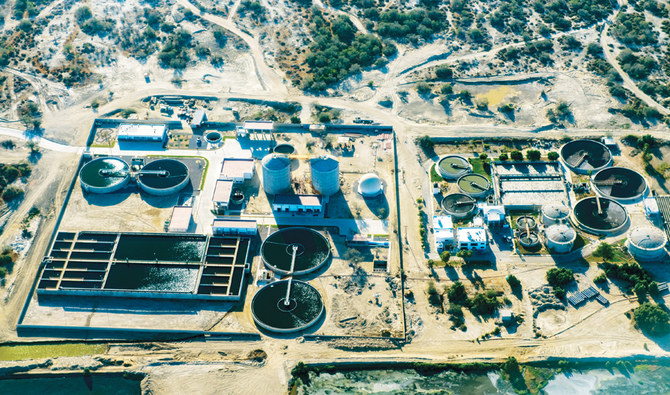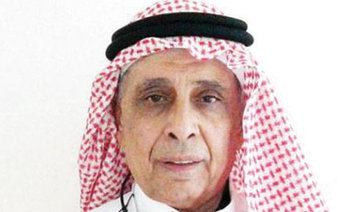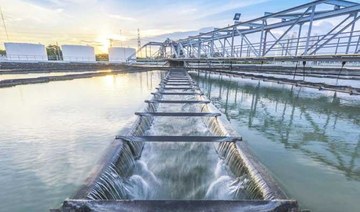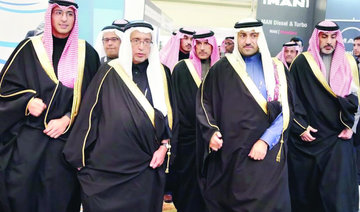DUBAI: Gulf Cooperation Council (GCC) member states, including Saudi Arabia, have long been providing generous supplies of water for drinking and sanitation to their populations.
But with average annual rainfall rates of less than 100 mm, the Gulf states’ ecosystems and water resources are under even greater stress than the arid Middle East and North Africa region as a whole.
It came as no surprise, therefore, when the Saudi Cabinet recently approved a cloud-seeding program that aims to increase rainfall in the Kingdom by almost 20 percent.
The Ministry of Environment, Water and Agriculture said the program was developed after a review of global practices and visits to other countries in the region to study their experiences of cloud seeding.
Since a three-day downpour caused flooding in parts of the UAE in November last year, there has been a lot of speculation in the region as to whether cloud seeding was responsible for the unusually heavy rain.
The National Center of Meteorology and Seismology (NCMS), which runs the UAE’s cloud-seeding program, said seeding plans were active around that time but did not create the extreme weather front that caused the thunderstorms.
While there is no precise way to evaluate the results of cloud-seeding efforts, one thing is for certain: GCC countries do not have the luxury of ignoring the option.
The technology can increase the amount of rain by up to 70 percent, depending on the quality of the clouds, according to studies.
“Large potential benefits can warrant relatively small investments to conduct operational cloud seeding,” the American Meteorological Society said in 2010.
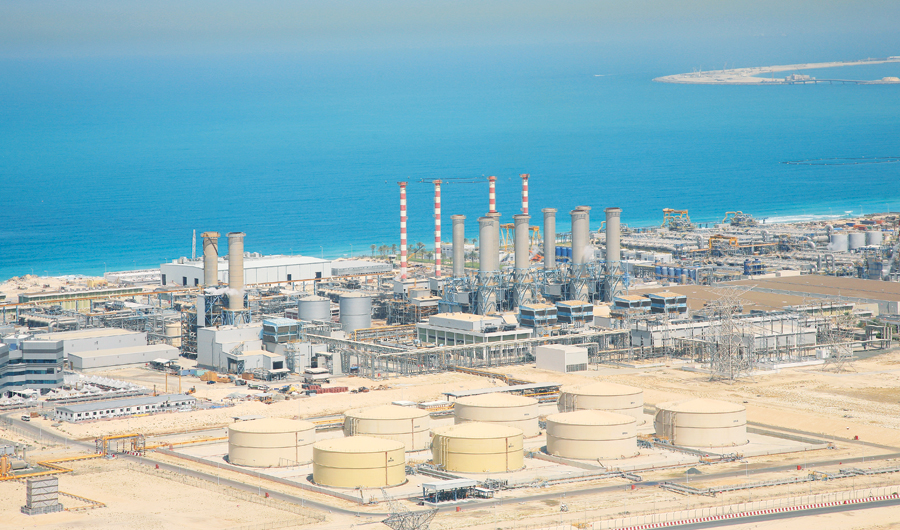
Desalination plants often dump highly concentrated saltwater back in the ocean. (Shutterstock)
Dr. Mohamed Shamrukh, a civil engineer who was a team member of Saudi Arabia’s cloud-seeding project in 2007-2008, said the latest program will help replenish groundwater supplies while potentially boosting rainfall by 10-20 percent, if not more.
“Saudi Arabia’s groundwater resources have suffered from over-abstraction due to high demand for different uses, which makes cloud seeding one of the first possible options to enhance groundwater recharge for sustainable use,” he told Arab News.
“Cloud-seeding, in an arid region like the Gulf, is a very complex physical process. It isn’t a low-cost method, but it’s competitive compared with desalination, for instance.”
As in the UAE, Saudi Arabia’s cloud-seeding program will target specific types of clouds, using their physical properties to stimulate rainfall.
Typically, catalysts — some of which are natural — are sown in selected clouds to release the largest possible amount of water.
The technology will not seek to create clouds; instead, it will aim to increase rainfall by providing cloud-condensation nuclei.
Saudi Arabia’s decision to explore cloud seeding is a no-brainer: With an average rainfall of about 59 mm a year, it is one of the world’s driest countries.
Despite campaigns aimed at safeguarding freshwater supplies — by urging people to use water wisely, recycling wastewater and encouraging savings and efficiency — consumption is expected to rise for a number of reasons.
Growing pressure is being placed on the Kingdom’s water resources by population growth and by the expansion of its industrial, energy, transportation, mining and agricultural sectors. The Saudi Vision 2030 reform plan aims to transform the Kingdom into a leading industrial power and an international logistics platform in a number of promising areas.
About 85 percent of Saudi Arabia’s total water demand is met by groundwater sources, but the rate of extraction is greater than the rate of replacement given the low rainfall.
The rest of the Kingdom’s water demand is met mostly through desalination of almost 2.7 billion cubic meters of seawater each year.
INNUMBERS
20% - Targeted increase in Saudi Arabia’s rainfall through cloud seeding.
2.7bn - Volume of seawater in cubic meters treated by Saudi desalination plants each year.
80-85% - Kingdom’s water demand currently met by groundwater sources.
59mm - Average annual rainfall received by Saudi Arabia.
But obtaining freshwater from the sea comes at a high financial and environmental cost in a part of the world dominated by vast, scorching deserts.
Desalination plants produce highly concentrated saltwater, or brine, that is often dumped back into the ocean.
“Brine production in Saudi Arabia, the UAE, Kuwait and Qatar accounts for 55 percent of the total global share,” according to the UN University Institute for Water, Environment and Health.
Desalination also relies on energy-intensive processes that produce carbon emissions at a time of growing concern about global warming. Last year was expected to be one of the hottest three years on record.
The Middle East is projected to need more and more energy, which means the situation is going to get worse.
Experts say if the region can produce power using solar panels, which are becoming reasonably priced, that would take care of a lot of the problem. 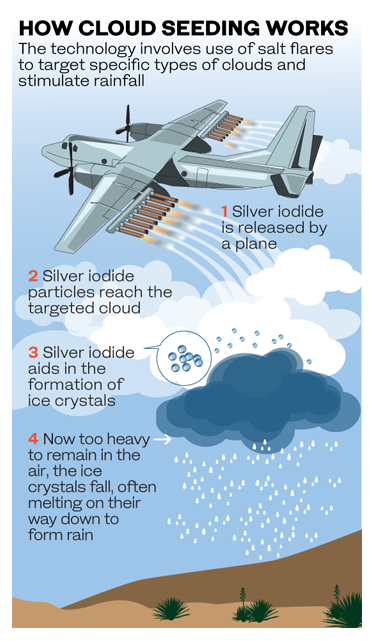
Cloud-seeding will potentially complement the process. A few days of heavy rain induced by cloud-seeding can, with luck, bring downpours equivalent to several years’ output of a single water-desalination plant. In other words, rain induced by cloud seeding is much cheaper than desalinated water.
According to Saudi authorities, it was way back in 1976 that the country began studying cloud seeding in partnership with the World Meteorological Organization.
An agreement was signed with the University of Wyoming to conduct the first cloud-seeding experiments, which took place in Asir in 1990.
The experiments have continued in Saudi Arabia’s central regions, specifically Riyadh, Qassim and Hail, as well as the northwest and southwest, with the participation of a group of specialist Saudi scientists.
The results reportedly proved that the clouds have seeding potential.
According to reports, ski resorts in the US state of Colorado use cloud seeding to induce heavier snowfall. Rain-dispersal technology was also said to have been used by China to ensure dry weather during the opening of the 2008 Beijing Olympics.
Closer to home, the UAE has been trying since 1990 to capture every drop of moisture stored in the clouds high above. Like Saudi Arabia, it ranks among the world’s top 10 arid countries.
The UAE, whose average annual rainfall is about 78 mm, is the second-largest producer of desalinated water after Saudi Arabia, accounting for 14 percent of global production.
As part of its cloud-seeding program, the UAE’s NCMS has forecasters based in Abu Dhabi monitor weather radars to tell pilots based in Al-Ain when to take off. The pilots operate Beechcraft King Air C90 planes equipped with salt flares that are fired into convective cloud formations to increase condensation and produce rain.
Shamrukh said more field experimental work is necessary before a clear conclusion can be drawn with respect to two questions: Whether cloud-seeding results in increased rainfall and, if so, by how much.
“The assessment of cloud seeding and its feasibility in the Gulf region must be done using a package of integrated scientific methods and simultaneous rainfall measurements on the ground surface,” he added.
“This experiment must be conducted for at least five years if the two questions can be answered in a scientifically accurate way.”


